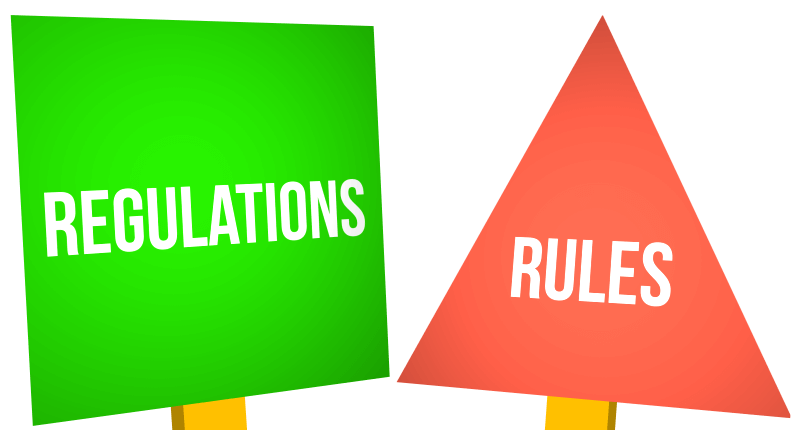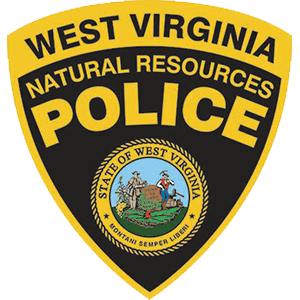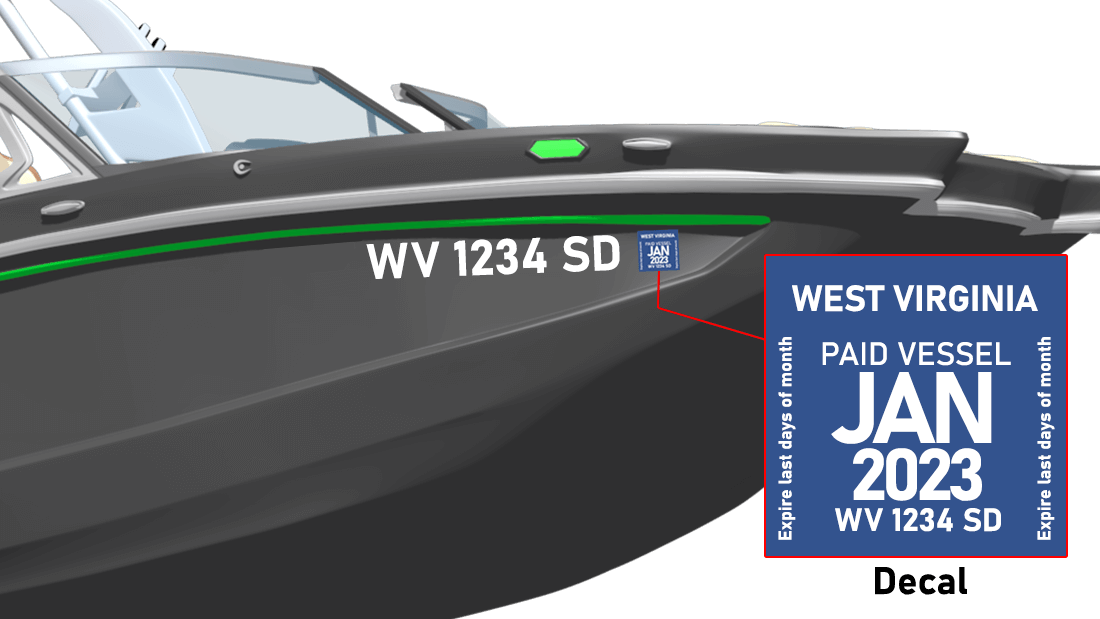West Virginia - Boating Laws and Regulations


Do I need a boat license in West Virginia?
Yes, unless exempted, beginning on January 1, 2001, no person born on or after December 31, 1986, may operate a motorboat or personal watercraft on any waters of this state without first having obtained a certificate of boating safety education from this or any other state.
West Virginia State Boat Registration Requirements - Numbers and Stickers:
What boats must be registered in West Virginia?
To operate any vessel with a motor (whether or not the motor is the primary source of propulsion) on West Virginia waters it must be titled, registered and display valid registration decals. Boat registrations are valid for three years and expire on March 31.
The following are exempt from numbering in West Virginia:
-
Non-motorized vessels such as canoes, kayaks and rowboats
-
Vessels that are properly registered in another state and are using West Virginia waters for a maximum of 60 days
-
Public vessels of the United States, West Virginia, or its municipalities.
You must display your boat number in the following manner:
-
Painted on or permanently attached to each side of the bow;
-
Using BLOCK letters at least three inches high and of one solid color contrasting sharply with the color of your boat;
-
To read from left to right; letters and numbers must be separated by a space for example, WV 1234 AB
-
No other numbers may be displayed
Every vessel that requires registration must display registration decals, including personal watercraft, as proof of registration. You must display your decals as follows:
-
On both sides of the boat
-
Within six inches immediately following and in line with the registration number
-
Only display current decals.

How do I transfer ownership of a used boat in West Virginia?
-
Obtain a signed title from the seller: The seller must provide you with a signed title that proves they are the legal owner of the boat.
-
Complete a Bill of Sale: The seller must also provide you with a Bill of Sale, which includes the boat's description, sale price, and the names and addresses of the buyer and seller.
-
Complete a West Virginia Division of Natural Resources Form: The buyer must complete a West Virginia Division of Natural Resources Form MB-6, Application for Certificate of Title for Watercraft.
-
Obtain a notarized signature: The seller's signature on the title and bill of sale must be notarized.
-
Pay the necessary fees: You must pay the title transfer fee, and any other applicable fees.
-
Submit the documents: You can submit the signed title, Bill of Sale, Application for Certificate of Title for Watercraft Form, and payment to the West Virginia Division of Natural Resources by mail or in person at a Regional DNR Office.
Who needs boater's license in West Virginia?
A person born on or after December 31st, 1986 who operates a motorboat on the waters of West Virginia is required to have a license.
Age restrictions for boaters in West Virginia?
It is illegal for anyone under the age of 12 to operate any motorized vessel (including PWC) in West Virginia.
West Virginia PFD requirements
Vessels may only be operated in or on West Virginia state waters if the vessel is carrying at least one US Coast Guard-approved wearable personal flotation device (PFD) in good condition that is readily available, approved for the appropriate activity, and of the correct size for every person aboard.
Operating under the influence of drugs and alcohol in West Virginia
In West Virginia, it is unlawful to operate a vessel (including PWC) or use water skis or a similar device while under the influence of alcohol or another impairing substance.
West Virginia law defines Boating under the Influence (BUI) as operating a vessel or manipulating water skis or a similar device while having a blood alcohol level of 0.08% or greater.
Boating accidents in West Virginia
It is the duty of the owner or operator of any vessel involved in a boating accident to file a full written report with the West Virginia Division of Natural Resources within 48 hours if the accident results in:
- The death of a person
Reports must be filed within 10 days if the accident results in:
-
Personal injury that requires medical treatment beyond first aid
-
Property damage (including loss) to the value of $2000 or more
Complying with officers
Any person operating a vessel on the waters of the state is required to bring their vessel to a stop after having been requested or signaled to do so by any peace officer. The operator must comply with the directives of that officer.
Personal Watercraft (PWC) in West Virginia
In addition to the regulations and laws regarding power vessels, PWC are also subject to the following laws and regulations in the state of West Virginia:
-
All PWC operators, passengers, and anyone being towed must wear a USCG-approved Type I, II or III PFD at all times
-
Operators of PWC equipped with an ignition safety switch must attach the engine shut off lanyard to his or her person, PFD, or clothing
-
PWC operation is only permitted during daylight hours (from sunrise to sunset)
-
PWC operators must not exceed 10 mph when following within 100 feet of the rear or 50 feet of the side of another vessel
-
Dangerous operation of a PWC is unlawful, this includes:
-
Weaving through congested traffic
-
Wake jumping in a dangerous manner (e.g. unreasonably close or when visibility is obstructed)
-
Becoming airborne within 100 feet of a vessel creating a wake
-
Water Ski Regulations in West Virginia
Anyone being towed behind a boat or PWC, in an activity such as waterskiing, must wear a properly fitted Type I, II or III USCG-approved PFD. The only exception is for people engaged in barefoot waterskiing who may, at their risk, wear a non-USCG-approved barefoot wetsuit designed for this specific activity.
There must be a person, other than the operator, on board who is at least 12 years old and who continually observes the skier, or the towing vessel must be fitted with a wide-angle rear-view mirror.
The towing vessel must have a capacity rating at least equal to the number of people operating, observing, and being towed.
Towing people on water skis or similar devices is only permitted from sunrise to sunset.
Muffling devices in West Virginia
Power vessels must be equipped with a functioning and effective muffler system in order to reduce the engine exhaust sound level. Muffler cutouts are prohibited.